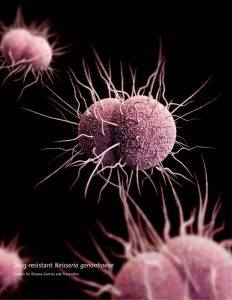Maine health officials are reporting dramatic increases in the sexually transmitted diseases (STD), gonorrhea and syphilis in the last five years.

According to the Maine Center for Disease Control and Prevention, gonorrhea cases increased 191 percent, from 236 cases in 2014 to 686 in 2018 and cases of infectious syphilis increased by 593 percent, from 15 cases in 2014 to 104 cases in 2018.
“STDs can come with a number of serious health consequences including ectopic pregnancy, pelvic inflammatory disease, infertility, and even death,” said Acting Maine CDC Director Nancy Beardsley. “It is important for health care providers to take comprehensive sexual health histories of their patients, and essential that individuals know the facts about STDs and get tested if they believe they are at risk.”
Visit myLABBox.com for easy, convenient and fast screening solutions for prevalent STDs, all in the privacy of your own home.
People who have anal, vaginal, or oral sex without a condom; individuals with multiple sex partners; individuals with anonymous sex partners; and people having sex while under the influence of drugs or alcohol are at greater risk for acquiring an STD. Anyone at risk should ask their health care provider about getting tested.
Most people infected with STDs will not have any symptoms. Those who do have symptoms may experience a rash, painful urination, bumps, sores, or warts near the infected area, and painless skin lesions. More serious complications can include pelvic inflammatory disease, damage to joints, blindness, cancer, or death. The only way to know if you have an STD is to be tested.
- Atlanta: Three confirmed cases in one family, all unvaccinated
- California measles: Vaccinations critical for overseas travel
- Gonorrhea cases up 17 percent in Europe
- Rat lungworm: 3rd case reported in Hawaii County
- Yersinia enterocolitica outbreak is being investigated in Sweden
- Dengue in Vanuatu: More than 200 cases in 2019 to date
- Measles in the US: 695 cases from 22 states
- Pre-Cut Melon Salmonella Outbreak Expands


